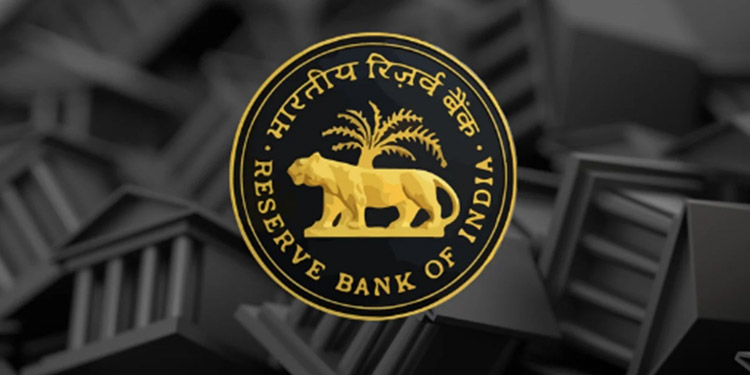
The monetary panorama is the present process of dramatic changes due to speedy developments in an economic era or fintech. This shift is converting the way individuals and corporations manipulate their price range, challenging the traditional banking gadget and ushering in a brand new technology of digital monetary management.
At the intersection of finance and era, fintech has emerged as an effective disruptor, bringing innovative solutions that redefine the banking experience for everybody. From simple cell banking and virtual payments to new lending structures and robo-recommendation services, fintech is reworking the way humans get entry to, use and interact with financial products and services
The impact of fintech is ways-attaining, as it complements monetary inclusion, encourages greater transparency, and fosters a tradition of innovation and competitiveness in the banking region Using present-day technologies such as synthetic intelligence, blockchain, and cloud computing, fintech agencies provide personalized products, green and available financial answers.
As the global fintech market unexpectedly evolves, the future of banking is inextricably related to the transformative power of these technological advances This advent units the level for an in-depth analysis of the way fintech is transforming the monetary panorama, is empowering human beings and reshaping the way we control our price range inside the coming years.
The destiny of finance is being significantly fashioned by using Fintech, a hastily growing section on the intersection of economic offerings and technology. Fintech is revolutionizing the economic panorama, transforming the manner traditional financial services are furnished to businesses and clients. With the global Fintech market expected to grow extensively, achieving $309.98 billion using 2022, the effect of Fintech on banking is profound and some distance-reaching.
Fintech is changing banking for everybody through:
- Enhancing Digital Banking: Fintech corporations are leading the way in virtual banking, imparting customers with on-hand and seamless approaches to manipulating their finances online and through cellular apps. This shift toward digital banking is reshaping the customer revel and forcing conventional banks to invest in their virtual structures to stay competitive.
- Disrupting Payment Landscape: Fintech enhancements are disrupting the payments landscape, introducing new and quicker methods to make payments which encompass cellular wallets and peer-to-peer (P2P) bills. This transformation is making transactions greater green and convenient for customers, using the adoption of digital rate solutions.
- Offering Alternative Lending: Fintech businesses are presenting alternative lending alternatives to purchasers and groups, tough the traditional dominance of banks in the lending market. These opportunity lending answers are often greater accessible and affordable, expanding monetary offerings to a broader target market.
- Leveraging Data Analytics: Fintechs are harnessing facts analytics to gain insights into purchaser conduct and preferences, enabling the improvement of new products and services that cater to evolving client desires. This facts-pushed approach is improving patron studies and driving innovation within the banking sector.
- Promoting Financial Inclusion: Fintech innovations are increasing entry to monetary services, attaining underserved clients, lowering transaction expenses, and providing greater transparency with simpler products and clean cost disclosures. This focus on monetary inclusion is making financial offerings greater handy and inclusive for a wider population.
- Driving Innovation and Competition: Fintech companies are riding innovation and opposition within the banking quarter, hard for conventional banks to evolve and innovate to fulfil changing purchaser expectancies. This opposition is pushing banks to decorate their digital services, enhance consumer studies, and explore new business organization fashions to stay relevant in a rapidly evolving monetary landscape.
In conclusion, Fintech is changing banking for anyone with the aid of introducing virtual advancements, disrupting conventional banking practices, supplying revolutionary monetary products and services, leveraging statistics analytics, promoting economic inclusion, and fostering a way of life of innovation and opposition within the financial region. The future of banking is intricately connected with the transformative impact of Fintech, shaping extra available, efficient, and consumer-centric monetary surroundings for individuals and companies worldwide.
The protection risks related to the use of fintech offerings consist of:
- Data Breaches: Fintech services are at risk of facts breaches, where hackers make the most weaknesses in protection protocols to advantage unauthorized entry to sensitive economic statistics, leading to monetary fraud, identification theft, and reputational damage.
- Phishing Attacks: Cybercriminals use deceptive approaches in phishing assaults to trick people into divulging touchy statistics with the aid of mimicking valid entities via emails, texts, or cellphone calls, posing a risk to the security of consumer data.
- Insider Threats: Employees or companions with get right of entry to to touchy records within fintech companies can pose a good-sized safety threat through deliberately or unintentionally misusing or exposing touchy facts, main-to-facts breaches, or cyber protection incidents.
- DDoS Attacks: Distributed Denial of Service (DDoS) assaults target the supply of fintech offerings using flooding systems with excessive visitors, causing provider disruption, economic losses, and reputational harm.
- Non-Compliance: Fintech companies have to adhere to various local and enterprise-unique compliance standards, and non-compliance can result in excessive monetary consequences and reputational harm, posing a danger to the security and integrity of financial services.
- Mobile Application Vulnerabilities: Mobile programs utilized in fintech offerings are prone to security vulnerabilities because of their sizable usage, making them a goal for cyber-attacks and statistics breaches.
- Third-Party Risks: Collaborations with 0.33-celebration carrier vendors and integrations divulge fintech companies to extra security risks, requiring thorough due diligence and complete seller hazard exams to mitigate ability vulnerabilities.
- API Vulnerabilities: Application Programming Interfaces (APIs) used for information sharing and integration in the fintech environment introduce vulnerabilities that cybercriminals can make the most of, posing a chance to the security of monetary records and transactions.
- Ransomware Attacks: The upward thrust of ransomware attacks focused on fintech companies poses sizable operational and monetary dangers, requiring normal data backups and robust network segmentation to limit the effect of such attacks.
- AI and ML Risks: The adoption of Artificial Intelligence (AI) and Machine Learning (ML) in fintech introduces particular risks consisting of biased algorithms or antagonistic attacks, necessitating moral AI practices to mitigate bias risks and make certain algorithms transparent and fair.
In the end, the evolving panorama of fintech services gives several safety risks that require proactive measures, non-stop training, and collaboration to decorate cybersecurity and protect touchy monetary facts within the virtual economic landscape.

